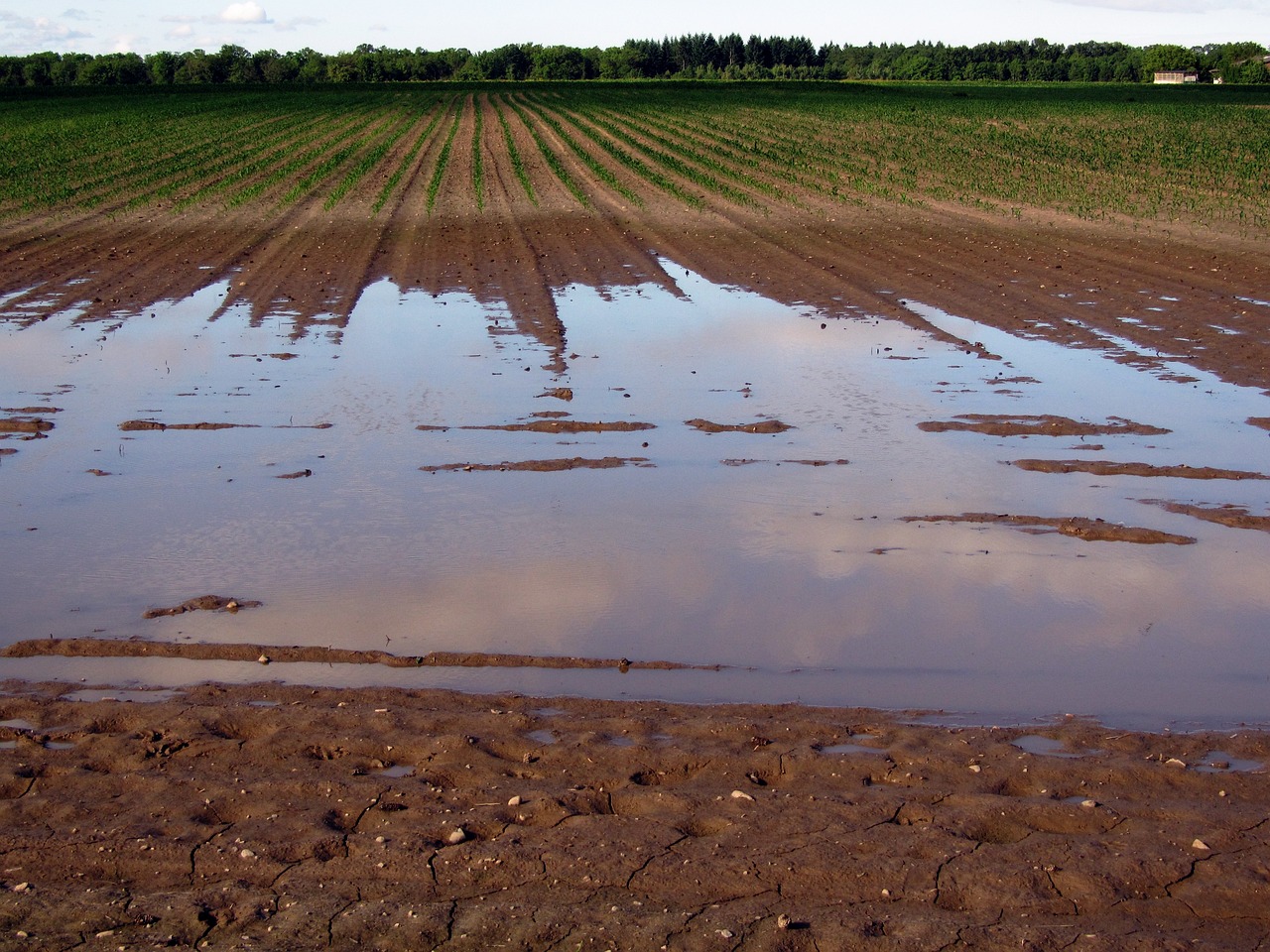Beyond the Flood: Impacts of Poor Drainage in Jamaica
Jamaica, renowned for its lush landscapes and vibrant culture, faces significant challenges due to inadequate drainage systems. The island's susceptibility to heavy rainfall, especially during hurricane seasons, exacerbates these challenges, leading to devastating economic losses for farmers and a ripple effect on the mental health of affected communities. This article explores the multifaceted consequences of poor drainage, particularly following events like Hurricane Byrel, highlighting the urgent need for systemic improvements.

Economic Impact on Agriculture
Agriculture serves as a cornerstone of Jamaica’s economy, providing livelihoods for thousands of families and contributing significantly to the nation’s GDP. However, the lack of effective drainage systems has resulted in catastrophic losses, particularly during periods of heavy rainfall. The aftermath of Hurricane Byrel serves as a stark reminder of this vulnerability, with farmers across the island reporting devastating crop losses due to flooding. Reports indicated that entire fields were submerged, with damages estimated to run into millions of dollars.
The immediate economic consequences of flooding are profound. Crops such as yams, bananas, and vegetables, which are staples of the Jamaican diet and economy, are often lost entirely. This not only results in a loss of income for farmers but also leads to increased food prices for consumers. As the supply of local produce diminishes, the prices for remaining goods soar, placing additional financial strain on households.
For farmers, the economic impact extends beyond immediate losses. The destruction of crops means that many are unable to invest in future planting seasons. This creates a vicious cycle where financial insecurity hinders agricultural sustainability. Additionally, farmers may be forced to take on debt to cover losses, further entrenching them in a cycle of poverty.
Broader Economic Consequences
The ramifications of poor drainage are not limited to agriculture; they extend into urban areas as well. Chronic flooding caused by inadequate drainage systems leads to significant infrastructure damage. Roads become impassable, businesses are forced to close temporarily, and the overall productivity of communities declines. Local shops and services suffer from reduced foot traffic and operational disruptions, resulting in lost revenue.
As businesses struggle, the impact on employment becomes pronounced. Small businesses, which are often the backbone of local economies, face increased risks of closure during heavy rains. Job losses in these sectors contribute to rising unemployment rates, further exacerbating economic challenges for families and communities.
The costs associated with repairing and upgrading drainage infrastructure often fall on taxpayers, creating an additional burden on already struggling communities. While the government may allocate funds for infrastructure improvements, these resources frequently compete with other pressing needs, leading to delayed responses. As a result, communities are left to cope with the ongoing consequences of poor drainage, further amplifying feelings of neglect and frustration.
Mental Health Implications
The economic losses stemming from poor drainage systems significantly impact mental health. Farmers witnessing their hard work washed away may experience profound feelings of despair, hopelessness, and anxiety about their financial futures. The constant threat of natural disasters creates an environment of uncertainty, which can contribute to chronic stress.
Research indicates that individuals experiencing financial instability are at a higher risk of developing mental health issues, including depression and anxiety. The psychological toll of witnessing one’s livelihood destroyed cannot be overstated. The emotional burden is compounded by the stigma often associated with mental health struggles in Jamaica, where seeking help may be seen as a sign of weakness.
The collective trauma experienced by communities after natural disasters can lead to pervasive feelings of helplessness. Residents may feel trapped in a cycle of environmental and economic challenges, resulting in chronic stress that affects their overall well-being. Studies have shown that communities impacted by natural disasters often experience increased rates of mental health issues, as the loss of livelihoods and homes can lead to feelings of isolation and despair.
Furthermore, the stigma surrounding mental health in Jamaica can inhibit individuals from seeking necessary support. Many may feel uncomfortable discussing their mental health struggles, fearing judgment or misunderstanding from peers. This lack of open dialogue can exacerbate feelings of loneliness and hopelessness, further deteriorating mental health.
A Call for Systemic Action
Addressing the issues of poor drainage in Jamaica requires a multi-faceted approach that prioritizes both infrastructure improvements and mental health support. The Jamaican government must prioritize investment in drainage systems that can withstand heavy rainfall and flooding. Effective drainage can help mitigate the economic losses faced by farmers and businesses, ultimately benefiting the broader economy.
Community involvement is also crucial in developing and maintaining effective drainage systems. Engaging residents in planning and decision-making processes can ensure that solutions are tailored to local needs. When communities have a voice in the management of their environments, they are more likely to feel invested in and responsible for the outcomes.
In addition to physical infrastructure improvements, there is a pressing need for mental health resources to support individuals affected by economic losses. Mental health programs can provide vital support, helping individuals cope with the stress and trauma associated with financial instability. By fostering a culture of openness around mental health, communities can begin to dismantle the stigma that often prevents individuals from seeking help.
Conclusion
The interconnectedness of poor drainage, economic stability, and mental health in Jamaica highlights a complex web of challenges that demand urgent attention. The devastating effects of inadequate drainage systems extend far beyond immediate financial losses, impacting the mental well-being of individuals and communities. As the nation grapples with the realities of climate change and increased rainfall, it is imperative that both the government and community stakeholders work together to develop sustainable, effective solutions.
By prioritizing infrastructure improvements and mental health support, Jamaica can safeguard its agricultural heritage, strengthen its economy, and enhance the overall well-being of its citizens. The path forward requires not only investment in physical systems but also a commitment to nurturing the mental health of communities facing the repercussions of environmental and economic instability.
Sources
- National Environment and Planning Agency (NEPA) Link
- Jamaica Agricultural Society (JAS) Link
- Mental Health Foundation Link
- Caribbean Institute for Health Research (CAIHR) Link
